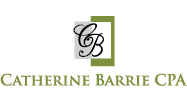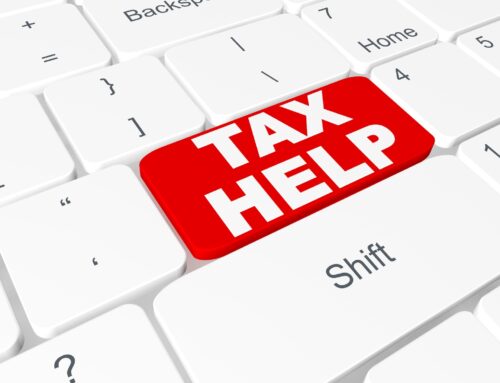Catherine Barrie Accounting Helping the people of Barrie and surrounding Simcoe area. We specialize in bookkeeping, tax preparation, filing, and other tax related issues. If you or someone you know needs Tax Guidance. Please contact our office immediately. Ask for me directly 705-719-7778. I would be happy to help you with any and all your tax needs.
Today I bring to you a post from reporter Rosa Saba she is a Calgary-based business reporter for the Star. As always Catherine Barrie Accounting is here to help guide all of us as much as I can through these difficult times.
“After helping millions of Canadians who lost income due to the pandemic, the Canada Emergency Response Benefit (CERB) is coming to an end.
On Sept. 27, a (temporarily) new-and-improved Employment Insurance program will catch around half of Canadians currently on CERB, while a suite of temporary benefits will aim to catch at least some of those who don’t currently qualify for EI.
If you’re confused about how to transition from CERB to EI, how to apply for the three new temporary benefit programs and how much you’ll get when you do, read on. We’ve got answers.
If you’re on CERB and think you qualify for EI
More than 2 million people currently on CERB will be eligible for EI, according to an analysis by the Canadian Centre for Policy Alternatives — in part because the government is allowing one-time hours-worked credits so that the minimum insurable hours to qualify are only 120. The minimum weekly payout has been raised to $500, so you’ll receive at least as much as you did on CERB, if not more.
And since CERB is taxable but EI is taxed at the source, the EI payment is higher than it looks for most people — you don’t need to pay back any EI come tax season.
If you’re on CERB, you should first figure out whether you’re eligible for EI. You’ll need a record of employment from your previous employer, and at least 120 hours of work to qualify.
If you believe you’re eligible for EI, the next step is to find out whether you’ll be automatically transferred over. If you’ve been receiving CERB through Service Canada, the process should be seamless, provided the system can handle it. But if you’ve been receiving CERB through the Canada Revenue Agency (CRA), you will have to apply for EI, which is administered through Service Canada.
One of the biggest differences between CERB and EI is that you’ll have to self-report every two weeks, said Barry Choi, a personal finance and travel expert — you need to be prepared to continually update your claim to keep receiving money.
If you are applying for EI, Choi recommends applying right away. Your first EI payment generally takes a couple of weeks, he said (though it could take longer).
Unlike CERB, “EI does take time,” he said. “Don’t assume things will be automatic.”
And if your application doesn’t seem to be moving, be proactive — call and check on it, said Choi.
Janet Gray, an Ottawa-based certified financial planner with national firm Money Coaches Canada, recommends having a contingency plan in case your money doesn’t arrive right away. And if you have any doubt about whether you’re eligible for EI, it’s best to call Service Canada and ask.
But “be prepared to sit on the phone,” she said.
Unlike CERB, you’ll need a record of employment (ROE) for EI to prove you’ve been laid off. Choi recommends checking your ROE to make sure it’s accurate, as errors or omissions — for instance if it doesn’t specify that you were laid off rather than terminated for cause — could prevent you from getting EI.
If you’re on CERB and don’t qualify for EI
If you don’t qualify for EI — and almost 2 million of those currently on CERB do not — don’t despair. You may be eligible for one of the three temporary benefits, which will be available for a year. Each one pays out for up to 26 weeks.
The $500-per-week Canada Recovery Benefit is meant to cover gig, freelance and contract workers who don’t qualify for EI. It previously paid $400 a week, but the Liberals bumped the amount up on Thursday.
The $500-per-week Canada Recovery Caregiving Benefit is for those caring for dependents and therefore can’t work.
And there’s a $500-per-week Canada Recovery Sickness Benefit for those with COVID-19, or who are self-isolating due to symptoms of or exposure to COVID-19.
All three will be administered through the CRA, and are on an attestation basis, meaning unlike EI, you don’t need an ROE to qualify — much like CERB.
More details on how these programs are administered is forthcoming, but the application process will likely be similar to CERB: through CRA, and simpler and faster than EI.
Other support available, and who’s left out
You can still apply for CERB retroactively until the beginning of December, covering until Oct. 3.
There is also a lesser-known program called Working While on Claim. This program is for people who have resumed working, but at a lower wage than before they lost work.
It’s administered through Service Canada, and is technically part of the EI program.
According to the Canadian Centre for Policy Alternatives, 482,000 former CERB recipients won’t be eligible for EI or the new benefits. This group will mostly be low-wage workers who make less than $1,000 monthly but who have technically returned to their pre-pandemic hours.
Planning for the future
Like CERB, the new recovery benefits are taxable. Also like CERB, if it later turns out that you didn’t qualify for a benefit you received, you will be made to pay back any money you received next spring during tax season. In addition, if you get the recovery benefit, some of the money you receive will be clawed back if you make $38,000 or more in 2020 (the $38,000 total includes CERB payments but excludes the recovery benefit).
Because of all these contingencies, Gray recommends setting aside 20 to 25 per cent of your income if possible, or more.
As well, she said it’s important to make sure your benefits don’t overlap — for example, you can’t receive the sickness benefit while also getting paid sick leave from your employer.
“If you are still getting some assistance from your employer, you may not be eligible for some of these other benefits,” she said.
Choi said while it’s important to prepare for tax season, if all your money is going toward costs you can’t avoid, that’s OK, too”.
Again, if you need help getting your Tax papers in order, have back Taxes, or any other Tax related needs. My office is open, and available to meet with you. Our office is conveniently located downtown Barrie. Please do not hesitate and call to set up a free consultation today 705-719-7778






